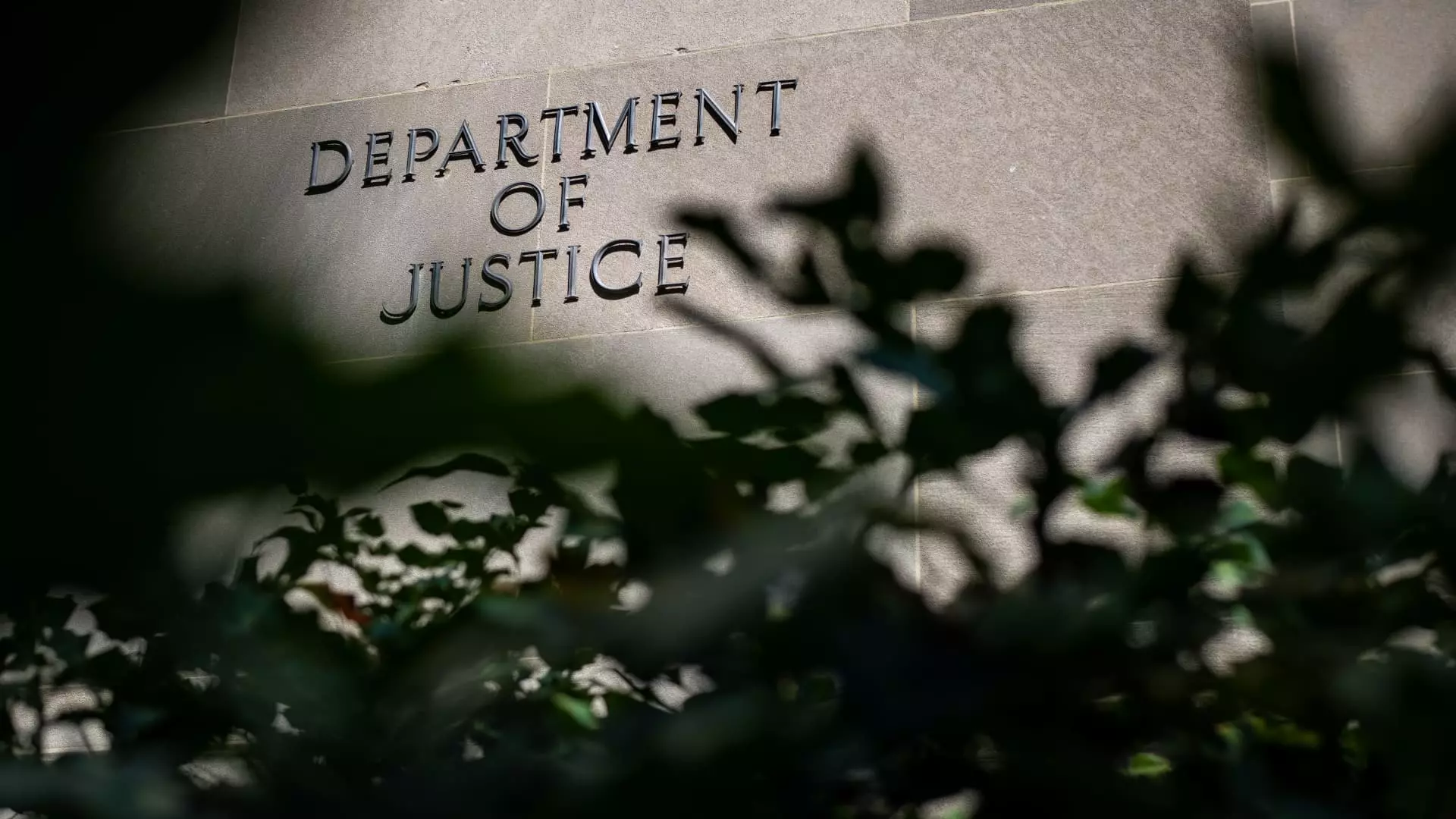In an unexpected move that may have far-reaching consequences for both the digital asset industry and its investors, the U.S. Justice Department has disbanded its National Cryptocurrency Enforcement Team. This shift, articulated in a recent memo from Deputy Attorney General Todd Blanche, reflects a broader abandonment of regulatory oversight traditionally applied to cryptocurrency operations. The memorandum reveals a new strategy that delegates most responsibility for digital asset cases to U.S. attorney’s offices, aiming to address crimes exclusively tied to terrorism and other serious offenses such as human trafficking and drug trafficking.
This dramatic retreat from federal oversight sends ripples of uncertainty throughout the cryptocurrency space, underlining a stark reality: when it comes to protecting investors and curbing illicit activities, accountability appears to be taking a backseat to a narrow focus on criminal enterprises. The disbanding of the NFTE represents not merely an administrative adjustment; it represents a disengagement from the serious regulatory duties that are necessary to protect those navigating the turbulent waters of digital assets.
Implications for Investors and Accountability
Under this new regime, the Justice Department explicitly states it will not pursue enforcement against crypto exchanges or services unless direct malicious intent is established. This laxer standard effectively provides a shield for many players in the cryptocurrency market, blurring the line between legitimate business activities and scams or fraudulent operations. Investors, often operating in an environment riddled with ambiguity, may find themselves at greater risk than before, thanks to this shift in policy. With less scrutiny on exchanges and decentralized platforms, potential fraudsters are likely celebrating the new environment in which they can flourish with far fewer repercussions.
Furthermore, the legacy cases that illuminated the dangerous underbelly of the crypto world—like the investigation into Binance—serve as a poignant reminder of the complexities involved in a market that struggles for legitimacy amidst rampant speculation and the allure of quick profits. By effectively curtailing its enforcement focus, the DOJ has opened the floodgates for fraud, which could lead to major losses for countless investors, especially those who may already be venturing into these crypto landscapes without adequate knowledge or experience.
The Role of Politics and Self-Interest
The decision to scrap the NFTE occurs against the backdrop of a political narrative that prioritizes deregulatory measures and crypto-friendliness—both cornerstones of President Donald Trump’s campaign rhetoric. This transition towards a riskier environment for investors can be viewed as part of a larger strategy aimed at consolidating political power through economic interests tied to the cryptocurrency world. Trump’s own investments and explorations in various crypto ventures, including a forthcoming digital bank and meme coin projects, raise questions of conflict of interest. How can the Justice Department maintain integrity in its direction when its associated leadership seems to be benefiting directly from an environment of reduced regulation?
Moreover, this shift underscores an alarming trend: a preference for market freedom that dismisses the grave responsibilities that accompany such choices. The political landscape may change, but the need for consumer protection remains constant. By sidelining investor interests in favor of a liberally-defined market, the current administration appears to be more committed to fostering personal gain than ensuring public safety.
Repercussions in a Volatile Market
The market reaction to these sweeping policy changes has already begun to unfold, as evidenced by the substantial decline in crypto values. Bitcoin, once perched at a staggering $110,000, has since plummeted to around $78,000. Investors who gambled on the idea that regulatory frameworks would provide some layer of protection are now faced with a stark realization: the very regulations they counted on are being dismantled, with little regard for potential fallout.
It’s ironic and tragic that in an industry purportedly built upon principles of transparency and decentralization, we are seeing a pullback into the shadows where individuals and organizations can operate with little to no oversight. For a market still finding its footing amid speculation, this ongoing deregulation could lead to an evaporation of consumer trust—a crucial element needed for long-term sustainability. The elimination of clear regulatory frameworks raises questions about the future viability of the cryptocurrency landscape itself.
As we stand at the precipice of this new era in cryptocurrency regulation, it is essential that both lawmakers and the crypto community recognize the fragile balance between innovation and accountability. While the allure of a freer market can be enticing, it should never come at the expense of investor protection and ethical standards. The future of cryptocurrency should not merely be about profit; it should be about fostering a responsible and secure environment for all stakeholders involved.


Leave a Reply